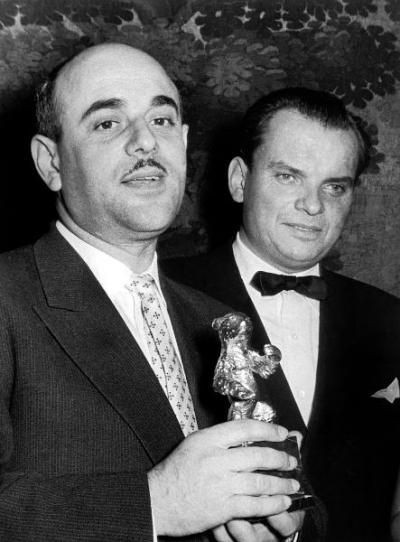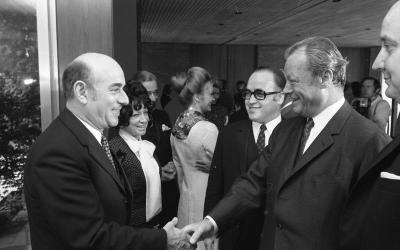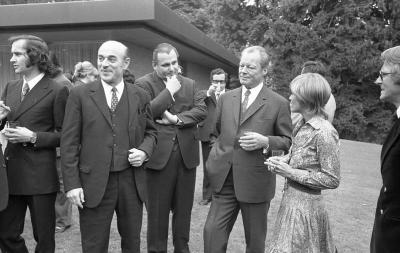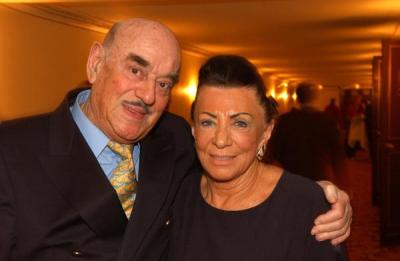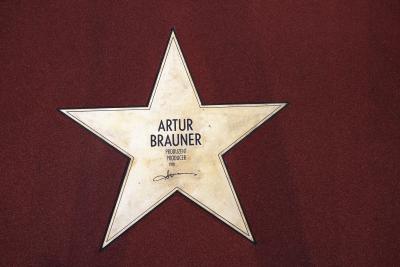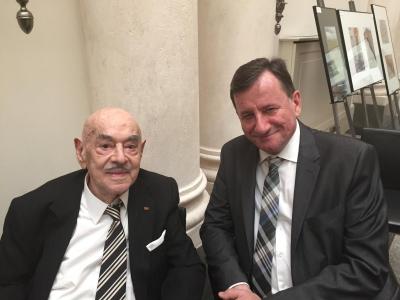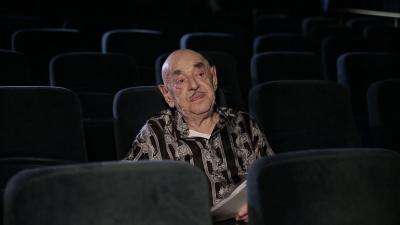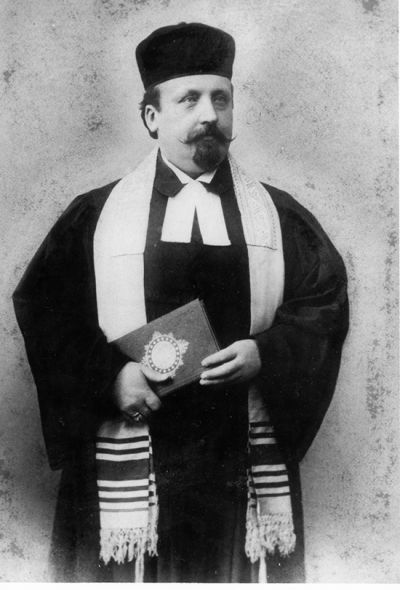Artur Brauner

Artur Brauner was a highly successful film producer above all in the area of entertainment. His Edgar Wallace productions, his Karl May films and the Dr. Mabuse series are unforgettable, as are the box office hits “The Good Soldier Schwejk”, “Die Nibelungen”, “Kampf um Rom” and “Teufel in Seide”. Artur Brauner’s films always kept up with fashions and disdained no trends. His success proved him right and gave him the money to work with great stars like Romy Schneider, Sonja Ziemann, Heinz Rühmann, Maria Schell, Cornelia Froboess, Peter Alexander, Freddy Quinn, Caterina Valente, Klaus Kinski, Curd Jürgens and Gert Fröbe.
Artur Brauner constantly aimed to maintain his contact with Poland. He was also the first Western producer to produce a film in Poland. This was in 1958 when he made the film “The Eighth Day of the Week” (Ósmy dzień tygdonia), freely adapted from a short story by Marek Hłasko. The director was Aleksander Ford, and the main role was played by Brauner’s discovery Sonja Ziemann. As a result of their collaboration Brauner made three further films with Ford. After the events of “March 1968” and the anti-Semitic campaigns in Socialist Poland, Artur Brauner broke off all contacts with his native country. It was only in the 1980s that he returned to the “Polish film landscape”, where he produced films by the likes of Andrzej Wajda, Agnieszka Holland and Jerzy Hoffman.
Adam Gusowski, February 2016
Additional information:
Artur Brauner set up the “Artur Brauner Foundation” in 1991. He said that the aim of the foundation was to promote understanding between Jews and Christians as well as tolerance between people of different religions, cultural circles, skin colour and social and ethnic origins. The aim of the foundation can be especially seen in the annual award of the "Artur Brauner Film Prize" to German-language film producers whose films disseminate tolerance and humanist values to their audiences.
In 1976 the Herbig Verlag published Artur Brauner’s autobiography, “Mich gibt's nur einmal. Rückblende eines Lebens”. The book revealed that “Atze” Brauner (that is the name of the author on the cover) to be a God-given storyteller. Artur Brauner’s fascinating and sometimes humorous memories give readers an insight into the turbulent life of a successful film producer. Sadly, not more. The book concentrates on the 1950s and less on the person of Artur Brauner: it is centred on screenwriters, directors and film stars who lived and worked with him.
